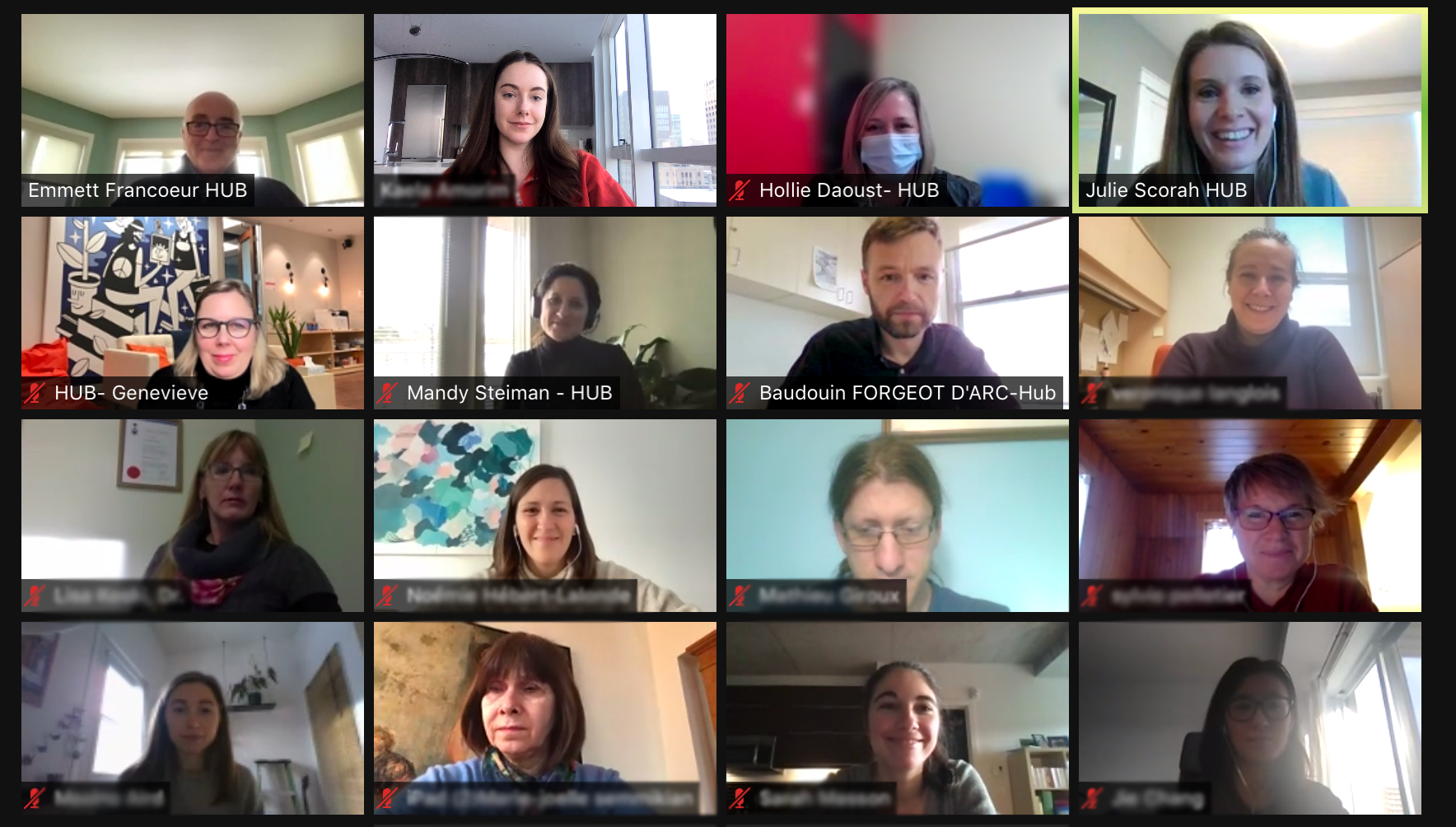Receiving a diagnosis in autism is key to accessing services and supports that help people reach their potential. Unfortunately, long waitlists for diagnostic evaluations are plugging up the healthcare system in Quebec and across Canada.
Quebec’s first ever ECHO-Autism “Diagnosis in ASD” virtual workshop ran from June to December 2021. The virtual CME-accredited programme, led by the Azrieli Centre for Autism Research (ACAR) Clinic at The Neuro, helped to enhance the skills of 29 new and experienced clinical autism professionals in diagnosing autism.
“Our goal is to increase the number of people in the healthcare system that are able to perform diagnostic evaluations and do them as part of their existing services; whether it’s a pediatrician seeing a patient in their community practice or a specialist in a neurology clinic,” said Julie Scorah, Associate Director of the ACAR Clinic.
“There are many professionals that could provide an autism diagnosis, and we want to make sure they have the training and support to be able to do that effectively.”
The ECHO modelTM in action
The Extension of Community Healthcare Outcomes (ECHO) modelTM aims to increase knowledge and standardize best practices among healthcare providers while reducing health disparities by erasing barriers between specialty and primary care (particularly in underserved and remote areas).

Did you know? The ACAR Clinic’s workshop helped spark several ECHO projects, including those taking place at the Centre hospitalier universitaire Sainte-Justine, Douglas Mental Health University Institute, and University of Rzeszow in Poland.
Participants in ACAR’s ECHO-Autism “Diagnosis in ASD” workshop benefitted from virtual clinics with the workshop’s ‘hub team’, made up of a developmental pediatrician, neuropsychologist, clinical psychologist, parent advocate, clinical nurse, social worker, and psychiatrist from the McGill University Health Centre, the Centre hospitalier universitaire Sainte-Justine, the Douglas Mental Health University Institute, and the CIUSS-ODIM.
Each of the eight sessions included a didactic lecture led by an expert, followed by a case study by a participant and group discussion.
“I really appreciated that the programme incorporated many perspectives and presented cases throughout the lifespan, with both clinical and didactic components,” said Jie Chang, PhD candidate in clinical psychology at Concordia University. “I’ve learned a lot about the autism spectrum from this ECHO and really appreciated the overall experience.”
“[The programme] validated my perspective and experiences in working with autistic patients with co-occurring conditions. I appreciated the different areas and skills of the Hub team,” added Dr. Catherine Masden, Psychologist.
Beyond diagnosis
“Receiving a diagnosis is a pivotal moment for families to unlock the system and access much needed services and care. And as a parent of an autistic child, I can say first-hand that it isn’t an easy journey,” said parent advocate Geneviève Côté-Leblanc.
As part of the workshop, Côté-Leblanc helped to shine a light on the lived realities faced by many families following a diagnosis.
She added, “I hope that in sharing my message, diagnosing providers will be in a better position to understand and offer support that reflect families’ needs.”
Ina Winkelmann, Coordinator of the Youth Mental Health Continuum, West Island Integrated University Health and Social Services Centre in Montreal, Quebec, also shared what treatments, interventions and resources are available to address the range of needs of autistic patients and their families.
“The most important parts of what I learned are the resources available to individuals with autism, and practical recommendations to give their parents,” said Melanie Brouillard, who is a doctoral student in clinical psychology at Concordia University.
For a preview of the workshop session, ‘Beyond Diagnosis’, watch:
Note: Case study and participant dialogue removed from this clip to preserve confidentiality
Building a community of shared expertise
The ACAR Clinic is hosting a 7-session ECHO-Autism workshop, with a focus on co-occurring conditions related to autism, starting on August 25, 2022 as part of its Clinical Capacity Building Program.
The ‘hub team’ panel of experts includes professionals from disciplines in genetics, neurology, neuropsychology, speech-language pathology, and developmental pediatrics, as well as a parent advocate.
Learn more about upcoming workshops or join our mailing list for updates.
About ACAR
The Azrieli Centre for Autism Research (ACAR) transforms research, training and care to improve the quality of life of autistic people and their families.
Established in 2017 thanks to the Azrieli Foundation, ACAR operates in the spirit of Open Science, inclusion and community collaboration. The research centre is committed to advancing understanding of the mechanisms underlying autism and related conditions, developing new diagnostic tools and effective interventions through translational research and integrated care, and training the next generation of fundamental and clinical autism researchers.







